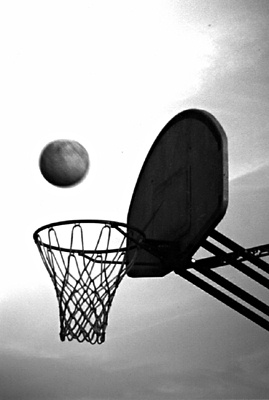All Nonfiction
- Bullying
- Books
- Academic
- Author Interviews
- Celebrity interviews
- College Articles
- College Essays
- Educator of the Year
- Heroes
- Interviews
- Memoir
- Personal Experience
- Sports
- Travel & Culture
All Opinions
- Bullying
- Current Events / Politics
- Discrimination
- Drugs / Alcohol / Smoking
- Entertainment / Celebrities
- Environment
- Love / Relationships
- Movies / Music / TV
- Pop Culture / Trends
- School / College
- Social Issues / Civics
- Spirituality / Religion
- Sports / Hobbies
All Hot Topics
- Bullying
- Community Service
- Environment
- Health
- Letters to the Editor
- Pride & Prejudice
- What Matters
- Back
Summer Guide
- Program Links
- Program Reviews
- Back
College Guide
- College Links
- College Reviews
- College Essays
- College Articles
- Back
Boston Celtics
Any discussion of NBA history starts with the Boston Celtics. Under the direction of Red Auerbach, the Celtics produced three dynasties winning 16 World Titles from 1957 to 1986. The fast break, the full-court press, and unselfishness on the court became synonymous with Celtics Basketball.
They were a charter member of the NBA when the league began in 1946. The team struggled for the first four years, but in 1950 two newcomers arrived who would forever change Celtics fortune and the game itself. Owner Walter Brown brought in former Washington Capitals coach Red Auerbach to take command; and as the result of a league contraction and a draft, a six foot guard from Holy Cross, Bob Cousy returned to the Boston Garden. The Celtics continued to improve with the addition of quality players the likes of Bill Sharman, Frank Ramsey, and Tommy Heinsohn, but the addition of Bill Russell in 1956 was the final piece of the puzzle.
Russell revolutionized the role of the big man in Basketball. His shot blocking, rebounding, and passing transformed a good team into an unstoppable force. With Cousy triggering the fast break, and the other players performing their roles, the first dynasty was underway.
Thirteen years and 11 championships later, Russell retired. After a couple of down years, Auerbach drafted rookie center Dave Cowens. Small for a center, Cowens made up for his size with his fierce intensity and toughness. With superstar John Havlicek a holdover from the Russell era, Cowens, and a collection of key role players, the Celtics added two more championship banners to the Garden rafters in the '70s.
Auerbach struck again in 1979. With a crafty maneuver, he drafted junior Larry Bird of Indiana State University. Bird had led his college team to the NCAA finals losing in the classic 1979 title game to Magic Johnson's Michigan State team. Bird was the NBA Rookie of The Year in 1980 with the Celtics improving from 29 to 61 wins. Johnson's Lakers won the title that year but the next year Bird led the Celtics to Championship number 14, and the rivalry of Bird vs. Magic, and the Celtics vs. the Lakers began again in earnest.
After Birds' retirement the Celtics fell on hard times. With the death of all-star Reggie Lewis in 1993, the retirement of Kevin McHale, and the departure of Robert Parish, the remaining ties of the glory years were gone. Over the next few years the wins became fewer culminating in a franchise worst record of 15-67 in 1996-1997. One bright spot that year was the arrival of rookie Antoine Walker.
The next year hopes were raised when Rick Patino was hired as coach and president of the team. The team improved by 21 games in the 97-98 season and ended on an upbeat note. It appeared luck was on their side when Kansas star Paul Pierce unexpectedly became available in the 1998 draft.
Pierce showed from the beginning that he was a special talent and has developed into a premier scorer, all around player, and team leader. He became the fastest Celtic to score 10,000 points and has became a perennial all-star. Since his arrival the team has had some success including a trip to the Eastern Conference finals in 2002.
The next year, Danny Ainge, a key member of the championship teams of the 80's returned to the Celtics as the Director of Basketball Operations. Ainge has retooled the team bringing exciting, athletic, and talented young players to develop as a unit together. With the superstar Pierce leading the way as the captain, there is reason for hope that the glory days will be returning to Boston.
With sixteen Championships, and twenty eight Hall of Famers, the Celtics established the standard for basketball excellence. Powered by the amazing skills of their superstars, they adeptly integrated their lesser players into roles best suited for their talents. When the Celtics were at their best, it was poetry in motion on a basketball court. Some say the Celtics success is related to their logo, the smiling leprechaun; but any basketball historian will tell you that luck had nothing to do with it.

Similar Articles
JOIN THE DISCUSSION
This article has 0 comments.
